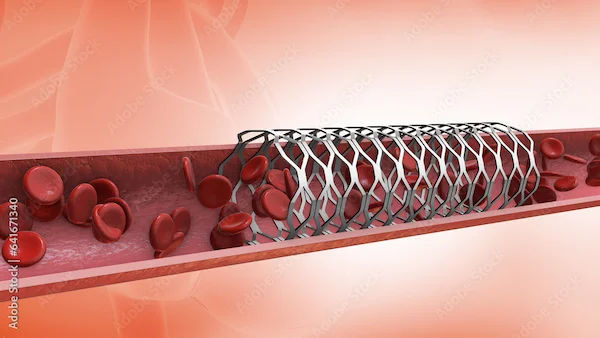- female
- 40 Years
- 31/03/2021
Why does my chest feel tight and heavy?
Answered by 1 Apollo Doctors
Chest tightness can be a sign of heart disease or GERD or anxiety
Dr. Mubarak Suggests...
Consult a Cardiologist
Answered 04/07/2025
0
0

More Cardiology Health Queries
View allI'm really worried about this ongoing chest pain I've had for the past month. I've done all the testsECG, 2D echo, and TMTand they all came back normal. My lipid profile is borderline though. I can't sleep because of the constant headache and chest pain throughout the day. The only way I'm sleeping is with Restyl 0.25 mg, but the chest pain just won't go away. What should I do next?
That could be duet to aniety,visit Psychiatrist for appropriate management
Answered by 1 Apollo Doctors
I'm a bit confused about the results of my TMT test. I didn't feel any chest pain during the test, and it said negative for inducible Ischaemia. But then my doctor mentioned the test was mildly positive. Does this mean I need to consider getting an angiogram?
yes as a prognostic tool you may undergo angiogram as advised.
Answered by 1 Apollo Doctors
I'm worried because about a month ago he got dizzy during the night and fell when he got up to use the washroom. Afterward, he felt sweaty but didn't have any chest pain. The next day, his blood pressure was really high at 180110 and his sugar levels were up too. The doctor mentioned RWMA but everything else looked good, and they're suggesting an angiography. Is that really necessary, or are there other options we could consider? He's never had issues like this before, and it all started a month ago when he began these medications: Zilarta 40, Metsmall 1000, Rosurica A 75, and Synx 500. What do you think?
The symptoms of dizziness, sweating, high blood pressure (180110), and elevated sugar levels, along with the doctor's recommendation for angiography, indicate a need for further evaluation of the cardiovascular system. Angiography is a common procedure used to visualize the blood vessels and identify any blockages or abnormalities in the heart. Given the patient's symptoms and test results, angiography may be necessary to assess the extent of any potential heart-related issues, such as coronary artery disease. It is important to follow the doctor's recommendation for further evaluation and treatment to ensure the best possible outcome for the patient's health.
Answered by 1 Apollo Doctors
Disclaimer: Answers on Apollo 247 are not intended to replace your doctor advice. Always seek help of a professional doctor in case of an medical emergency or ailment.


.webp)

